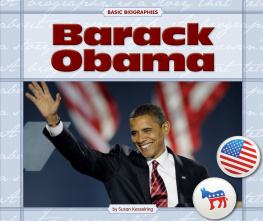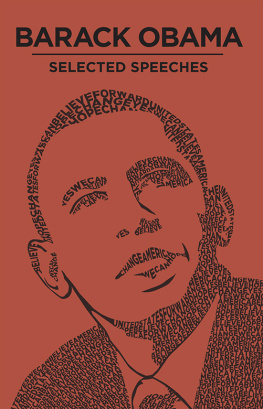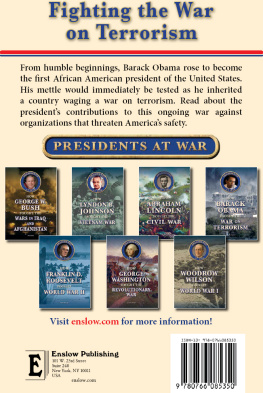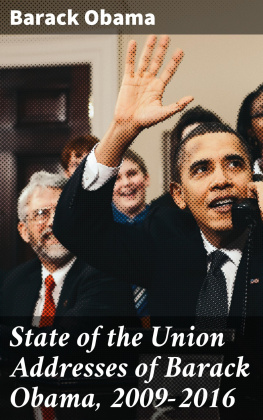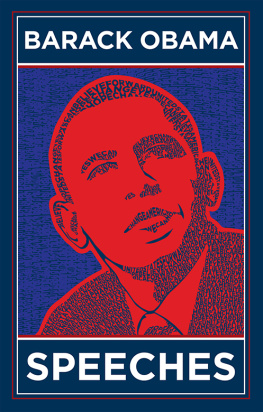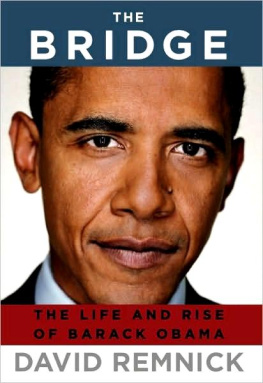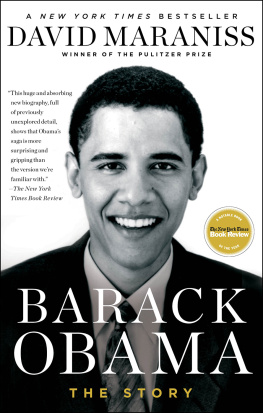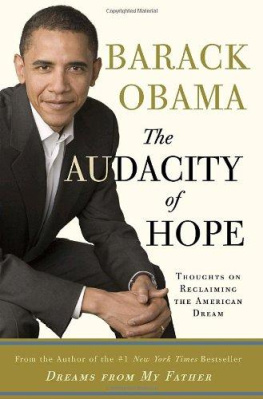YOUTH SPECIALTIES
Barack Obama: An American Story
Copyright 2008 by Bob Carlton and Ariele Gentiles
All rights reserved under International and Pan-American Copyright Conventions. By payment of the required fees, you have been granted the non-exclusive, non-transferable right to access and read the text of this eBook on screen. No part of this text may be reproduced, transmitted, down loaded, decompiled, reverse engineered, or stored in or introduced into any information storage and retrieval system, in any form or by any means, whether electronic or mechanical, now known or hereinafter invented, without the express written permission of Zondervan.
EPub Edition June 2006 ISBN: 978-0-310-85070-0
Youth Specialties resources, 300 S. Pierce St., El Cajon, CA 92020 are published by Zondervan, 5300 Patterson Ave. SE, Grand Rapids, MI 49530.
ISBN 978-0-310-67003-2
All Scripture quotations, unless otherwise indicated, are taken from the Holy Bible, Todays New International Version. TNIV. Copyright 2001, 2005 by International Bible Society. Used by permission of Zondervan. All rights reserved.
Web site addresses listed in this book were current at the time of publication. Please contact Youth Specialties via e-mail (YS@YouthSpecialties.com) to report URLs that are no longer operational and replacement URLs if available.
08 09 10 11 12 13 14 20 19 18 17 16 15 14 13 12 11 10 9 8 7 6 5 4
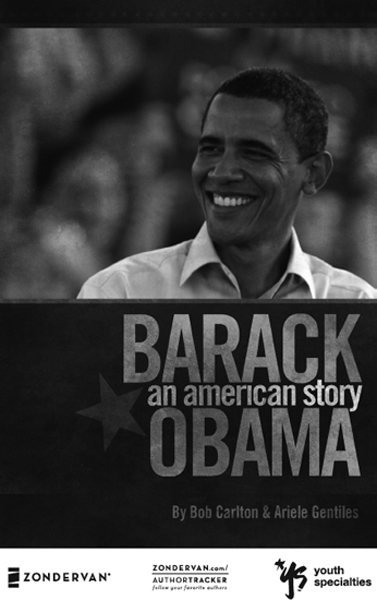
Introduction:
The Fierce Urgency of Now
We are now faced with the fact, my friends, that tomorrow is today. We are confronted with the fierce urgency of now.
MARTIN LUTHER KING JR.
America appeared to be coming apart at the seams. Thousands of miles away, an unpopular war was raging with no end in sight. Economic challenges at home made it difficult for families to make ends meet. The nations trust in institutions like the church and government had taken a huge hit. Politicians faced a country that appeared on the verge of a second Civil War. Young people were rising up in unprecedented numbers as part of a cultural and political rebellion that took its name from the radical idea of love.
A man climbed some steps to a podium to proclaim an unpopular truth. His skin color subjected him to different treatment in a land founded on freedom and equality. His faith drove him to speak out, no matter the cost:
We are now faced with the fact, my friends, that tomorrow is today. We are confronted with the fierce urgency of now. In this unfolding conundrum of life and history, there is such a thing as being too late. Procrastination is still the thief of time. Life often leaves us standing bare, naked, and dejected with a lost opportunity. The tide in the affairs of men does not remain at floodit ebbs. We may cry out desperately for time to pause in her passage, but time is adamant to every plea and rushes on. Over the bleached bones and jumbled residues of numerous civilizations are written the pathetic words, Too late. There is an invisible book of life that faithfully records our vigilance or our neglect.
That man was Dr. Martin Luther King Jr., speaking from the pulpit at the historic Riverside Church in New York City. The year was 1967. The war was the conflict in Vietnam.
America was in the middle of a revolution in civil rights, one that would eventually circle the globe. President Lyndon B. Johnson, responding to the moral leadership of Dr. King and others, had worked to overcome southern resistance (including many religious leaders) and convinced Congress to pass the Civil Rights Act of 1964, outlawing most forms of racial segregation. In 1965 Johnson worked with senators and civil rights leaders to achieve passage of the Voting Rights Act, which outlawed discrimination in voting and allowed millions of southern Blacks to vote for the first time. That same year, after the murder of a prominent civil rights worker, President Johnson went on television to announce the arrest of four Ku Klux Klansmen implicated in her death. He denounced the Klan as a hooded society of bigots, urging the nation to return to a decent society before its too late. Johnson drew on the core themes of Christian redemption to push for civil rights, ultimately mobilizing support from churches North and South. In 1967, Johnson appointed civil rights attorney Thurgood Marshall to the Supreme Court, making Marshall the first African American to serve on the Court.
Five thousand miles away from the White House, a six-year-old boy was living with his mother in Honolulu, Hawaii. Hed been born on this island of mystery and beauty, the child of a white woman from Kansas and a black sheepherder from Kenya. His father had left him and his mother when the boy was two years old, and mother and son had subsisted on the charity of family and friends, as well as assistance from the U.S. government. In 1967, the young mother had recently returned to school for the first time since her divorce. During the next year, the mother would remarry and give birth to another child, and the family of three would move to a country halfway around the world.
No life story is universal, but the journey of this young boy born in the 50th state resonates with the life experience of millions of other young women and men. A boy who works to find his place in a family where he is visibly different from his mother, father, and siblings. A young person living in a distant land, discovering new friends, a new language, and heartbreaking lessons about his identity. A fatherless son struggling to gain a sense of identity and an understanding of how vital parenting is to the families and communities we live in. A young black man struggling for acceptance at institutions of privilege, where he finds himself growing so angry and disillusioned at the world around him that he turns to alcohol and drugs. A searching adult who turns to Jesus for deeper meaning, finding an example that leads him to dedicate his life to feeding the hungry and healing the sick, always prioritizing those his Savior called the least of these over the powerful.
Barack Obama has traveled that journey from Hawaii to the cusp of the highest political office in the United States of America. Obamas story is filled with historic firsts from the schools he attended, to the jobs he has taken, to the legislation he has championed. His story is also one of reconciliation: As a son growing up without a father, as an African American in a country that still struggles with racism, as an elected official who struggles to work beyond the stifling boundaries of partisan politics. For this man who loves building bridges and playing basketball, there is no greater calling than that of serving the common good, working to change hearts and change structures.
Forty years after Martin Luther King climbed those steps at the Riverside Church, Barack Obama found himself challenged by the fierce urgency of now. After a career in public service, Obama faced a country mired in a war in Iraq, facing mounting economic woes, and experiencing what many saw as a void in leadership. He found himself haunted by Kings warning that we dare not wait until it is too late, procrastinating and hoping others might answer the call. If he were to pursue the Democratic nomination for president, Obama knew he was certain to face complaints about his age, his race, his experience, and even his church. But he could not turn away from the fierce urgency of now that pounded in his soul.
I think people are more excited about the potential for more transparency in government. Whether or not that happens remains to be seen.
LINNI KRAL,
Next page

